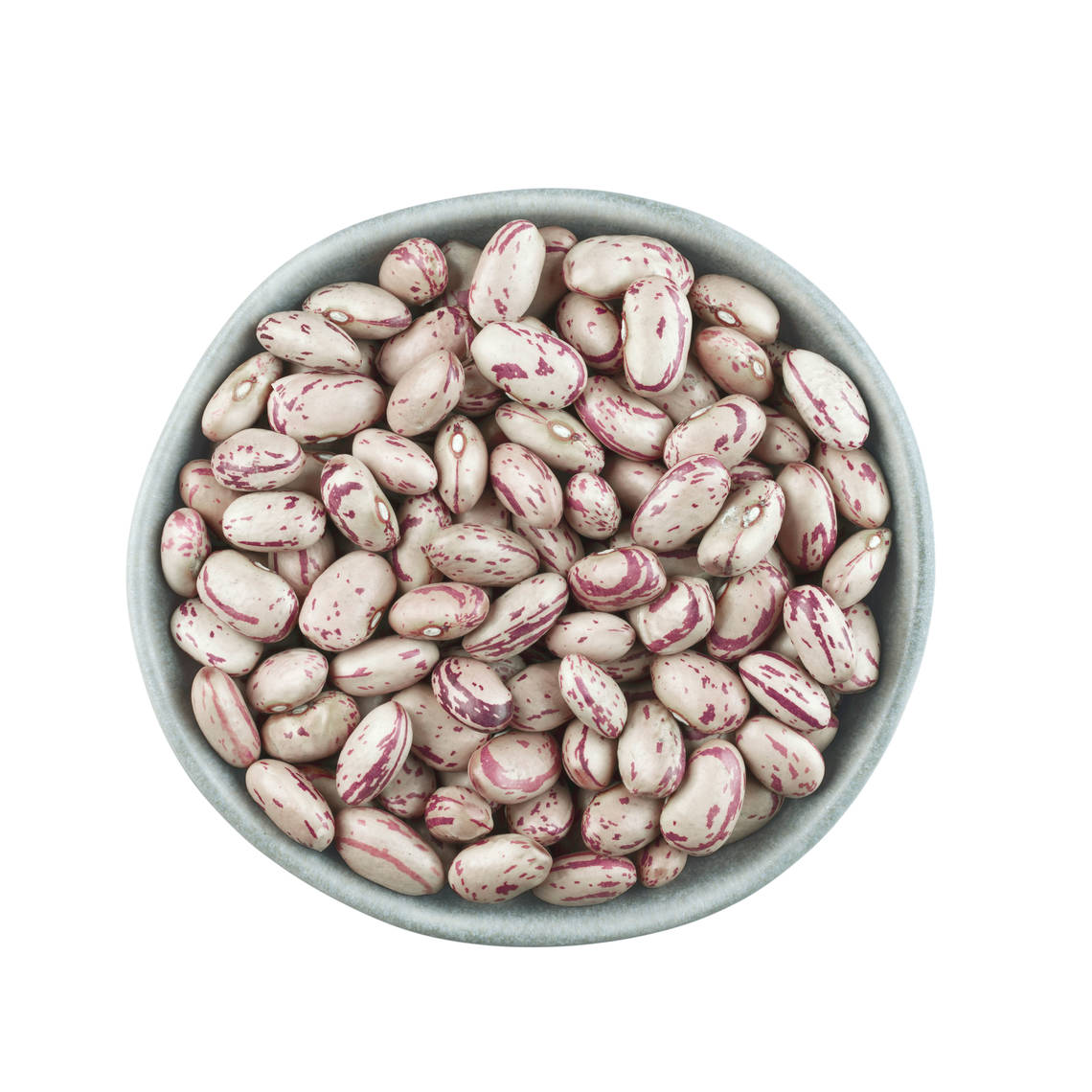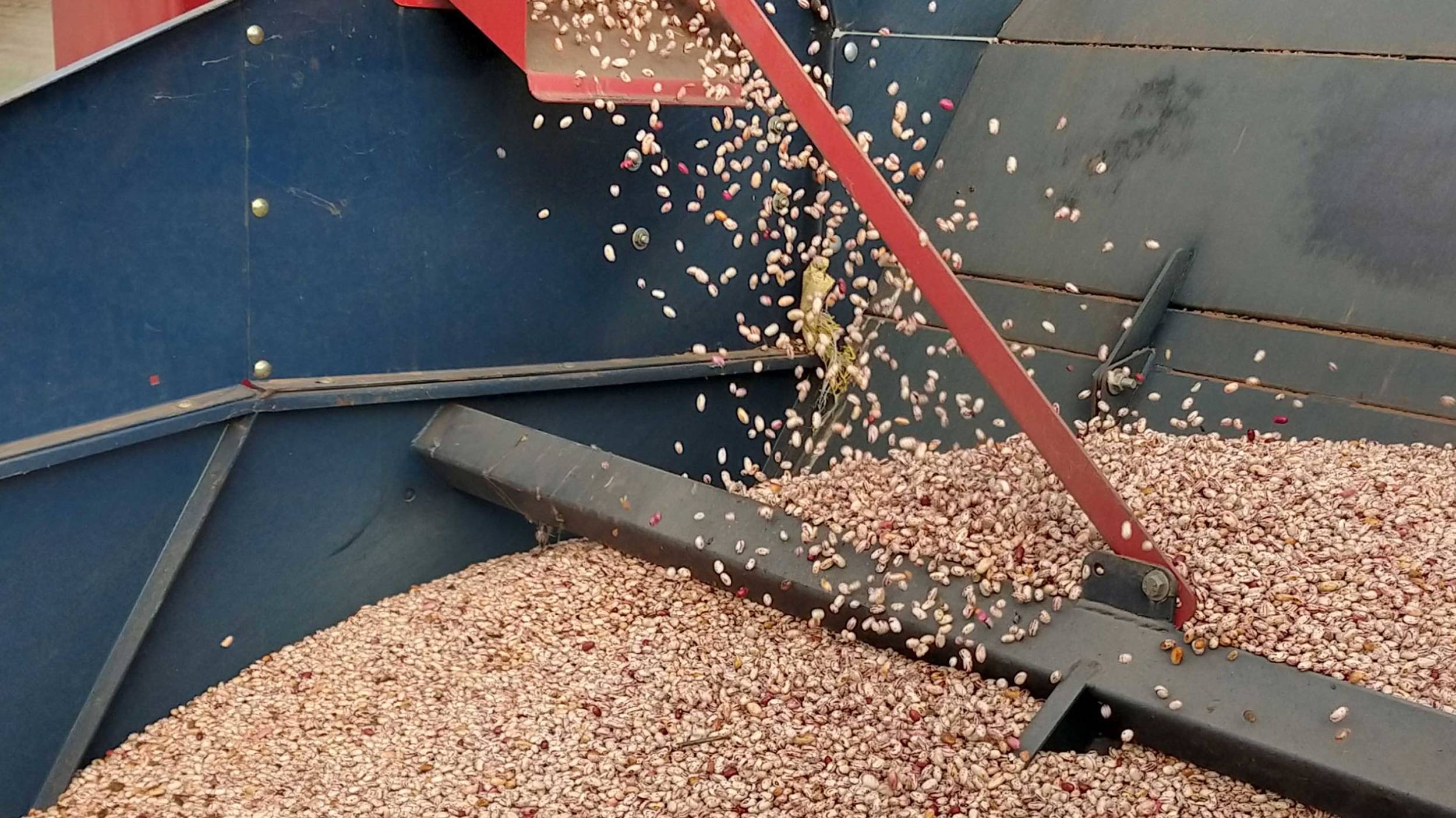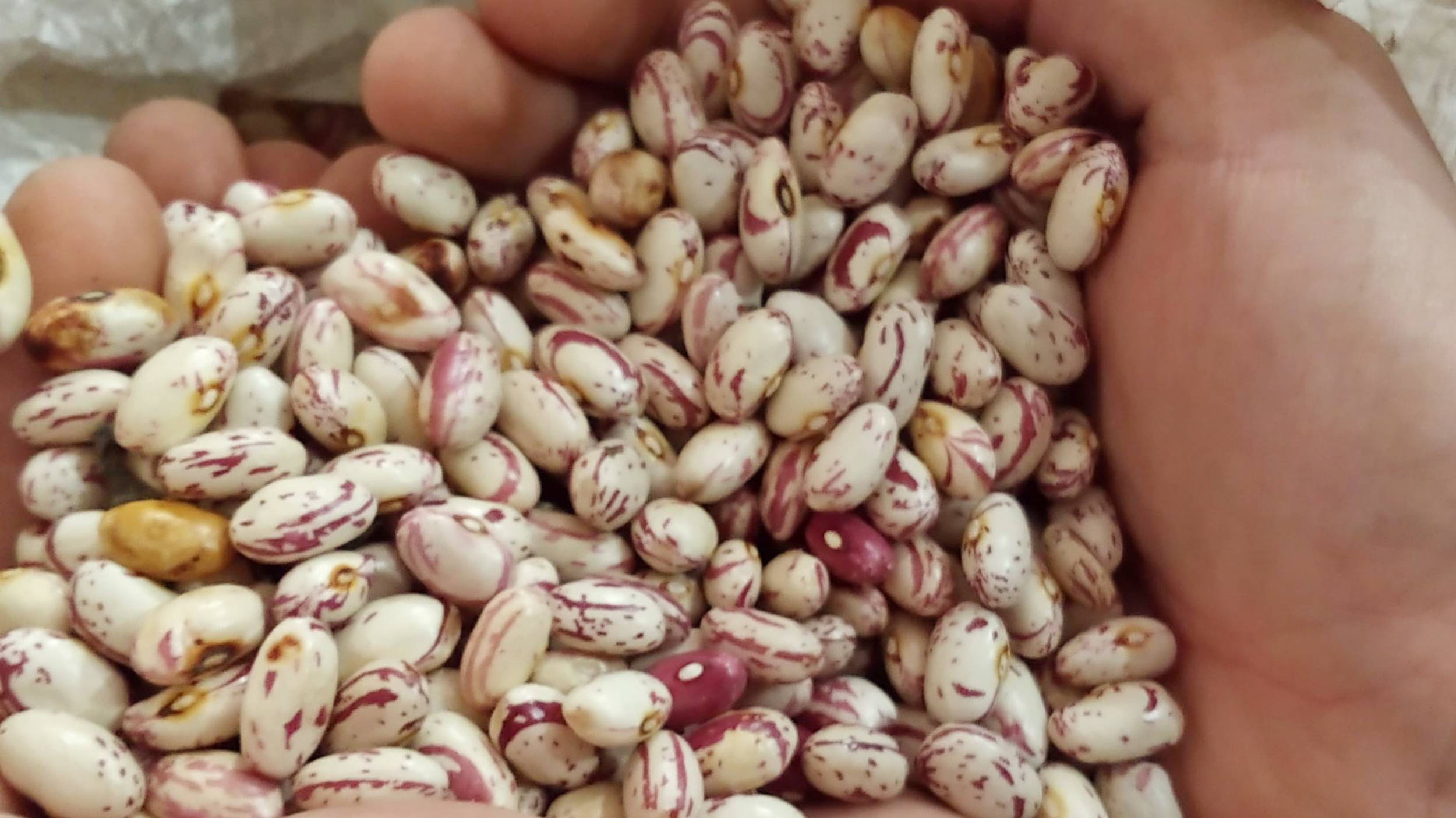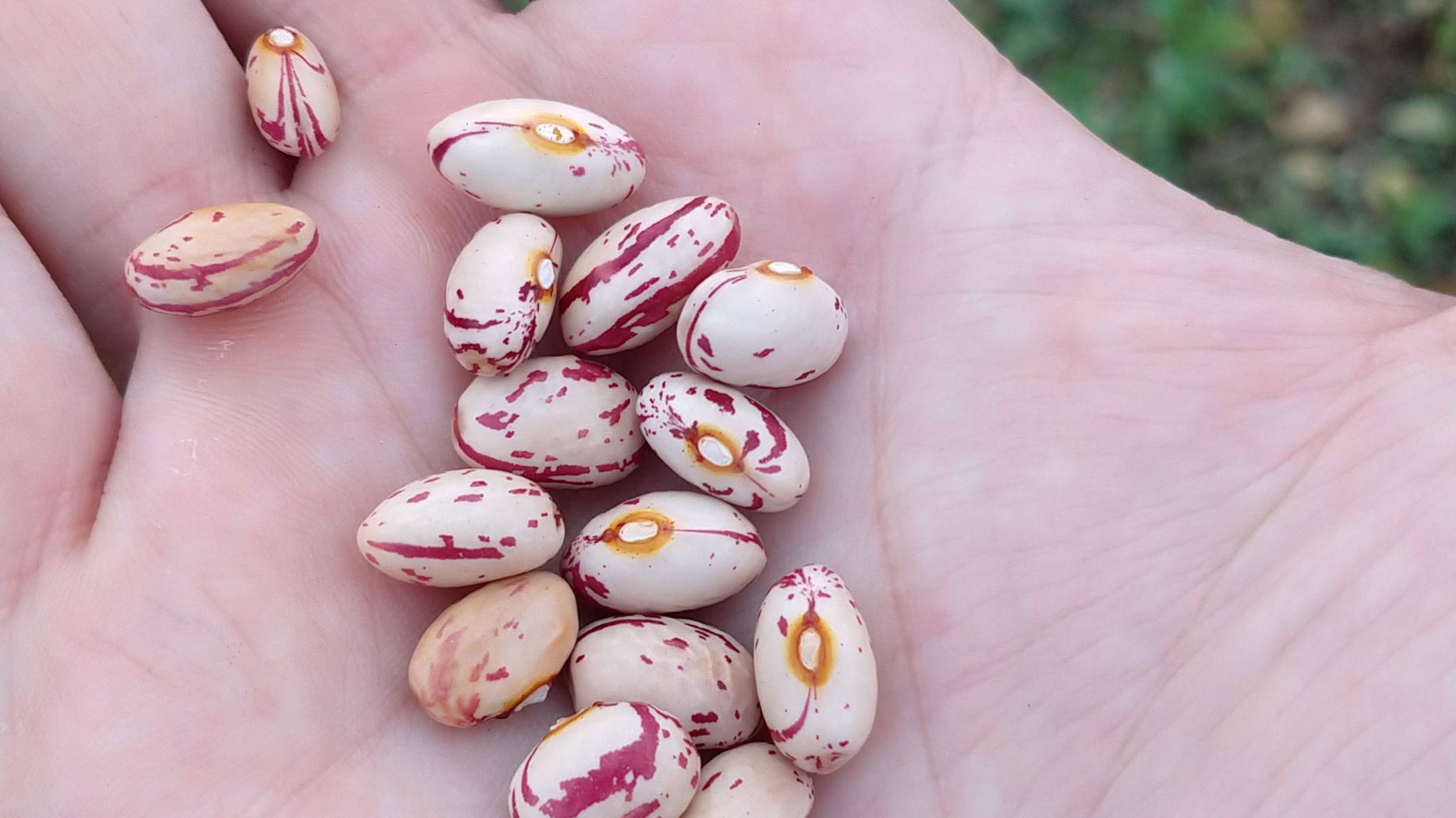Cranberry beans from responsible sources
Cranberry beans owe their name to the beautiful cranberry-coloured markings on the outer layer of their skin which disappears on cooking. They are also called Roman beans or speckled sugar beans. Originally from Columbia in South America, cranberry beans have become especially popular in Italy, where they are often known as borlotti beans. In addition to their delicious taste, cranberry beans have distinct health benefits. Like many other pulses, cranberry beans contain a high proportion of protein, dietary fibre and iron and are low in fat and sodium. They also rank low on the glycemic index.

Cranberry beans in classic dishes
These light-colored, medium-sized beans have a mild, slightly sweet and nutty flavour. Their creamy texture makes them the ideal bean for versatile cooking. They are a favorite in northern Italian, Spanish and Portuguese cuisines where they are often used in classic pasta dishes or bean soups. Cranberry beans are also a popular ingredient in salads, stews or bean spreads or snacks.



Cono ships cranberry beans in peak condition to customers worldwide
Cono plants and exports only the finest cranberry beans to meet worldwide customer demand. Handled with care, delivered with pride – from a source you can be sure of.
Our specifications
Origin |
Argentina |
Growing area |
Centre and north of the country |
Harvest period |
June / July / August |
Harmonized Systems (HS) code |
0713.33 |
GMO status |
Non-GMO |
Typical color |
Ivory with red markings |
Size |
160-300 (number of grains per 100 gr) |
Packaging |
|
Mode of use |
Important note. Please read carefully. This is a raw agricultural product. It may contain illness-causing pathogens. It has not been processed by the manufacturer to ensure its microbiological safety. The product must be subject to cooking, heat treatment or other appropriate commercial processing effective to eliminate such illness-causing pathogens before human consumption. This product is not suitable for sprouting. This product contains Lecithin. It must not be eaten raw or undercooked. |

